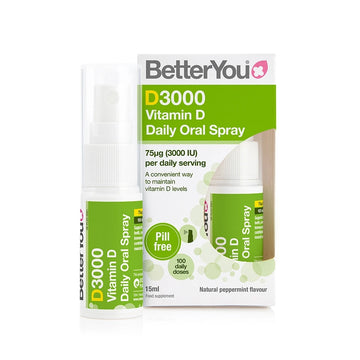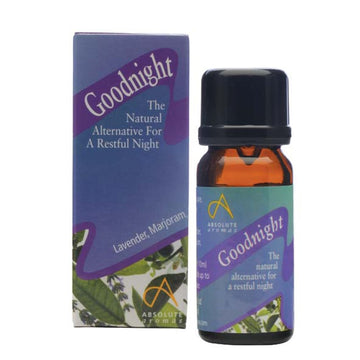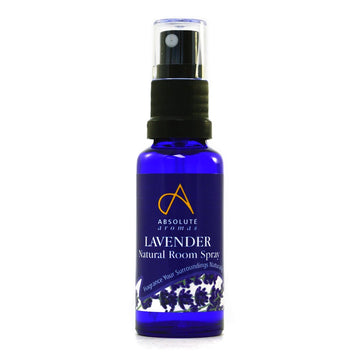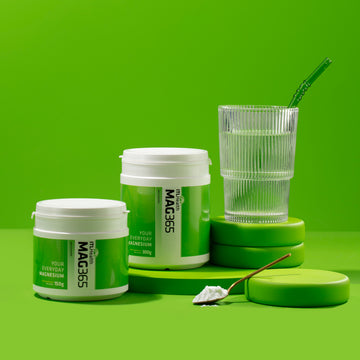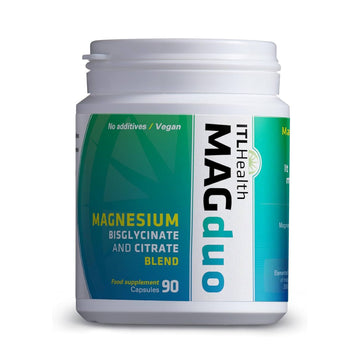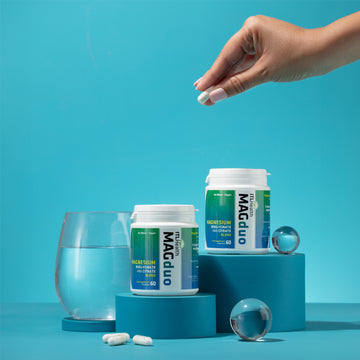There's no denying winter can be tough going for many. After a jam-packed Christmas full of festivities, great food and catch ups, you're now faced with a long month with notoriously awful weather, darker mornings and evenings as well as feeling sluggish on top if at all.
While for some it might just take a little bit of TLC to shake a low mood and tiredness, for others, it can be quite a challenge to ease these winter blues. It might also be the case that you're suffering with SAD or Seasonal Affective Disorder. So what exactly is SAD and are there any natural remedies for Seasonal Affective Disorder?
What is SAD?
Seasonal Affective Disorder (SAD) can be brought on by the change in seasons, and typically starts in autumn or winter and continues up until spring or summer. The symptoms of seasonal affective disorder (SAD) are like the symptoms of depression and according to the HSE can include:
- a persistent low mood
- a loss of pleasure or interest in normal everyday activities
- feeling irritable
- feelings of despair, guilt and worthlessness
- low self-esteem
- tearfulness
- feeling stressed or anxious
- a reduced sex drive
- becoming less sociable
They occur repetitively at a particular time of year. There are a few reasons for this. It's darker a whole lot more come Autumn/Winter which means we're producing more melatonin which helps to regulate sleep. Coupled with shorter days, this increase can leave people feeling lethargic in the middle of the day.
SAD & Serotonin levels
Another factor that comes in to play is serotonin levels. Serotonin is the key hormone that stabilises our mood and feelings of wellbeing. Getting some sun can bump up your serotonin and as we see far less sunshine during the winter months, our serotonin levels may be lower. Serotonin impacts all parts of the body from our emotions to motor skills and helps with sleeping, eating and digestion.
We're also producing less vitamin D at this time of year thanks to far less sunlight. The lack of sunshine affect our bodies’ ability to synthesise Vitamin D, which helps to keep our bones and immune system healthy.
How can you beat SAD?
SAD can vary from individual to individual in terms of severity. There are a range of treatments that can help tackle SAD from light therapy to Cognitive Behaviour Therapy (CBD) and medication. There are natural remedies for Seasonal Affective Disorder as well that may help alleviate symptoms, although we do advise consulting with a medical professional if symptoms persist.
Natural Remedies for Seasonal Affective Disorder
If you are looking for ways to tackle SAD, there are a number of natural remedies for Seasonal Affective Disorder that may help you get on top of it.
Vitamin D supplementation
We don't see as much sun as we'd like here in Ireland, especially during the winter months. Many people find themselves travelling to and from work in the dark and this can impact the body’s production of Vitamin D, as it’s made when the skin is directly exposed to the sun.
Research has shown that insufficient vitamin D may be linked to depression and fatigue. This lack of sunlight means we’re getting nowhere near enough and may need a supplement as a result to get our levels up to where they need to be.
We have a wide range of vitamin D products here in Evergreen which can be taken during the winter season - read about 5 of the best vitamin D supplements to take.
Improve your sleep quality
Sleep has a major impact on your mental health and energy levels. It’s so important you’re getting the right amount. Of course, it isn’t always that easy. If you are struggling with sleep quality, there are a few little things you can try such as adding a few drops of lavender essential oil to a bath at night to help your body to relax and prepare for bed.
Another option is to apply an essential oil to a muslin cloth and leave it beside your pillow. Alternatively, you could use Mag365 to relax your muscles or L-Theanine which is found in most green and black teas, to calm a busy mind before bed time.
Eat a Healthy Diet
When it comes to natural remedies for Seasonal Affective Disorder, what you eat can make a big difference to your mental health. Research shows that eating a healthy, nutrient-filled diet with adequate amounts of complex carbohydrates, essential fats, amino acids, vitamins, minerals and water can improve your mood and feelings of wellbeing. Even if you you’re not a fan of New Year’s resolutions, making good food choices is definitely something to try and get on board with!
Cut out stimulants
It can be so easy to fall into the trap of using stimulants to enhance our mood and energy levels. As the mornings become darker, we rely on coffee to wake us up or turn to sugar to give us an energy boost throughout the day. While we all need little things to look forward to like a cuppa or treat now and again, relying on them to keep you going is counterproductive. They’ll induce our bodies into unnatural states of high and low so you’ll get that hit but you’ll coming crashing back down.
If you’re looking to boost your energy levels naturally, it may be worth trying to work the likes of Revive Active or Nature’s Plus Source of Life Gold in to your morning to give you a natural boost.
Make Time to Exercise
It can be hard to fit in a run or get outside to exercise when it's lashing rain or find the motivation to go to the gym when it's pitch black before work. But exercise is one of the best things you can do for your mood and mental health. It produces feel good chemicals called endorphins that help with mood regulation, so it can perk you up.
Any exercise will do, from a simple walk on your lunch break to a gym workout or a yoga class. Exercise can also help improve the quality of your sleep which is an added bonus.
Please note, this blog is for informational purposes only and should not replace medical advice.
It’s always best to consult your doctor before taking any new supplements, treatments or remedies if you are pregnant, breastfeeding or on medication.
Checked and updated: 28 August 2021



